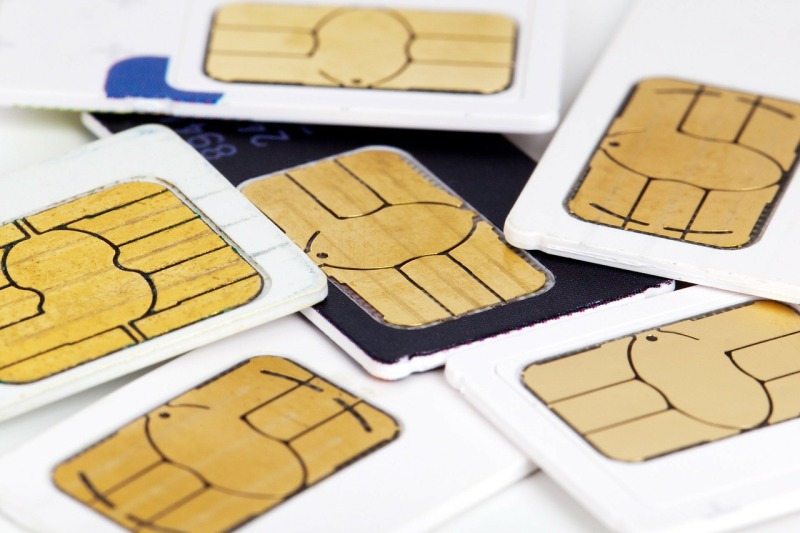Get A Foreign SIM Card
Why you must always buy a foreign sim card as a single male traveler
Let me start off with some generic nonsense that was buzzing around in my head before I started traveling.
My thinking about Europe, my most sought-after travel destination at that time, went somewhat like this:
“Europe is finally becoming one. The more the European Union is expanding the more the same rules will apply anywhere in Europe. Soon enough we will have the same standards in administration, business and communication in Lisbon as we will have them in Prague, Bucharest or anywhere else.”
Now, the clever traveler that I am I had already discovered
the one advice that lets you save money when you travel. With all my fears of horrendous fees for withdrawing cash or getting ripped off at shady currency exchanges gone up in smoke it was only natural that I tried to pull off the same trick in other fields of traveling. What has worked for saving money must work elsewhere, right? Well, at least so I thought.
First Thoughts On Calling Abroad
What I had in mind was applying my money travel tip to the field of using my cellphone in a foreign country.
Quickly, this brillant conclusion popped up in my head:
If…
Then…
One Size Fits All?
Trying to find a one-size-fits-all solution for making calls abroad I didnt have to search for long: My dirt-cheap German prepaid SIM Card by low-cost provider Aldi Talk offered a 300 minute/sms package that was valid throughout Europe and even included 300MB of data transfer at UMTS speed. And at the price of just 7,99€ it seemed like a total bargain. Bingo! For my first trip across Eastern Europe 300 minutes/text messages was more than enough.
Enter: Roaming
Was it any wonder I signed up for the roaming package covering the whole European Union? I was so happy as I had eliminated one more source of hassle/rip-off that would just waste my time. At least so I thought.
Traveling With Aldi-Talk
In the beginning things went smoothly. While heading to Prague as my first destination good ‘ole Aldi Talk seemed to deliver as usual. Every time I crossed borders I received the same text message that was only altered by the changing names of the countries I was traveling through:
“Welcome to [country’s name]! You are using [XYZ network] as your national roaming partner. Your home provider’s rates and fees apply”.
So far so good.
1. In Prague
Prague, like many other Eastern European cities, has a heavy drain of young people leaving the city during the summer months. The more peak season the less people in age range of 18 -29 will be in the city, often to a dramatic extent. If you are looking for thriving nightlife in Prague, Budapest and Bratislava and you go in June, July or August then many of the people you will be partying with won’t be locals, but elderly people, families – or stag-party retards (I give the reasons for the annual urban mass-exodus in Eastern Europe in my Kiev travel guide).
A Sausage MILF-Fest
To make it short, the women whose phone numbers I got in Prague were by far not what I had exptected.
And with (i) my amount of data transfer gone fast as well as (ii) my refusal to buy a local SIM card I was relying on text messaging and calls.
Radio Silence
Now comes the funny part: While I was meeting girls I had known beforehand my total reply rate from the phone numbers I got outside of that sphere came down to exactly zero . That’s right, for some god-forsaken reason not a single one of my text messages was ever answered.
I’m Out
Highly surprised by the novelty factor of getting zip replies my time in Prague was almost up. I prepared heading for my next destination, the ‘Paris of the East’, Budapest.
2. In Budapest
Budapest took the summer-drain to another level. Due to heavy austerity measures imposed by the right-wing Hungarian government there was an abundance of homeless people sleeping all over the city’s public benches. In combination with the ansence of young people it seemed as if locals were swapped for an armada of homeless men that were freely snorting away during broad daylight. To make it short, I more or less came at the wrong time of the year.
Dating Non-Hungarians In Hungary
So it came that I met non-local girls almost exclusively. One of them was a Brazilian girl that I approached in a supermarket. Although she blended in perfectly with the Hungarians in terms
of looks – she could have easily passed as a local with a slightly more olive complexion – it was still easy to make out she was Brazilian. Looking at her hands, and at her nails in particular, proved to me beyond reasonable doubt that she in fact was Brazilian – and not a local. We exchanged numbers and then some messages would ensue.
At least that was what I thought.
The Bermuda Triangle Of Text Messages
In reality, just like in Prague and unbeknowing to myself, I was, again, sending my messages into the Bermuda Triangle of text messaging where they would disappear forever. After I met and texted the Brazilian girl and she supposedly went silent on me I subconsciously began to smell a rat. I decided to do something I hardly ever do, namely actually call people up. To make it short, here is the Brazilian girl’s response which she gave with a disappointed undertone:
“Oh, you sent a message? I never got one!“
I-never-got-one, she said. Things started to dawn on me.
Introducing RISM: Roaming-Induced Self-Muting
I never got zero replies, my messages had never been delivered in the first place! That was the bogus procedure that had been going on here while I was as clueless as it gets. All the messages from Aldi Talk telling me about whatever roaming network I had just been connected to didn’t mean anything. I might have
Check out her nails and unless she is Swedish-like blonde this nail color guarantees she is ‘do Brasil’.
been connected to whatever roaming network my phone hooked up with, albeit I was never served on that network. My messages must have gotten some least-urgency treatment or, and that is much more likely, they were simply not sent out whatsoever. And if it wasn’t for asking about it I would have never found out.
The One Rule Of Texting & Calling When You Travel
By relying on roaming with the local networks I had unwillingly muted myself while I still was paying for everything on top of it. What a lose-lose. Therefore, the number one rule for calling/texting/messaging while you travel is this one:
This essential advice also eliminates all the alternatives of buying “international” SIM cards as they all rely on the same root of all evil that is roaming. Offers like those from:
- https://www.truphone.com
- http://www.lebara.com
- http://www.onesimcard.com
- http://www.lycamobile.com
- http://www.go-sim.com
- http://worldsim.com
Are no magical SIM cards that somehow manage to work in all networks worldwide. In reality, they all rely on roaming and therefore are not immune against the risk of delivering all your messages to a virtual No Man’s Land.
Wanna shoot yourself in the foot while trying to date abroad? Buy one of these “international” SIM cards and see where it takes you.
The good news
The good news is that avoiding these offers has no disadvantage. The opposite is the case. Not only are all offers unreliable (roaming), they are also totally overpriced.
Go-sim.com, for instance, offers a “Travel Pack” that costs a heavy $49 and contains one of the magical “international” sim cards. But let’s just start to compare prices: do you happen to know what a SIM card of the cheapest brand (Play Mobile) costs in Poland? The answer is 5 Zloty. Five Polish Zloty converts to no less than 1,21€ or $1,33, making the offer by go-sim.com 36 times as expensive as the most frugal local SIM card.
Roaming: Unreliable And Expensive
Things get even stranger when you take lebara.com’s prices for a national call in Ukraine. In Ukraine, all calls within the network of one of the large national carriers are free of charge. Therefore, almost all companies have not one, but three numbers, one for each of the largest service providers. This is so customers can call them for free. Now, what is Lebara.com’s price per minute for a national call in Ukraine? A juicy $0.45!
It gets worse though as Worldsim.com even charges 0,57€/minute for a national call in Ukraine. – Even if you had to pay for the call with a local Ukrainian SIM card would you pay less per minute. Much less. And if you were trying to reach a business you would pay nothing.
In conclusion, “International” SIM cards are useless in almost every aspect. Especially since we all know that the cheapest SIM card not for local, but for international call is called Skype.
The Solution
The first trip you should take when traveling any European country is that to a local phone store. Buy a local SIM card and you will save money & time plus you will avoid the insane risk of self-mute without even knowing about it.






2 Comments
neville_scollop
September 28, 2015 at 09:37So does Aldi talk equate as a local SIM in Germany or do you advise avoiding using it completely?
euromentravel
September 28, 2015 at 10:13ALDI talk is a great local SIM card for Germany!
Just dont even think of using it abroad, like I did.